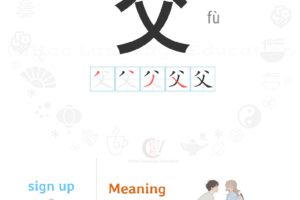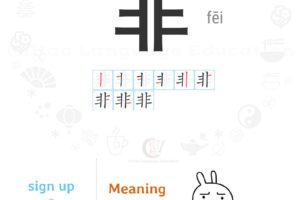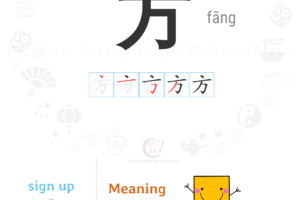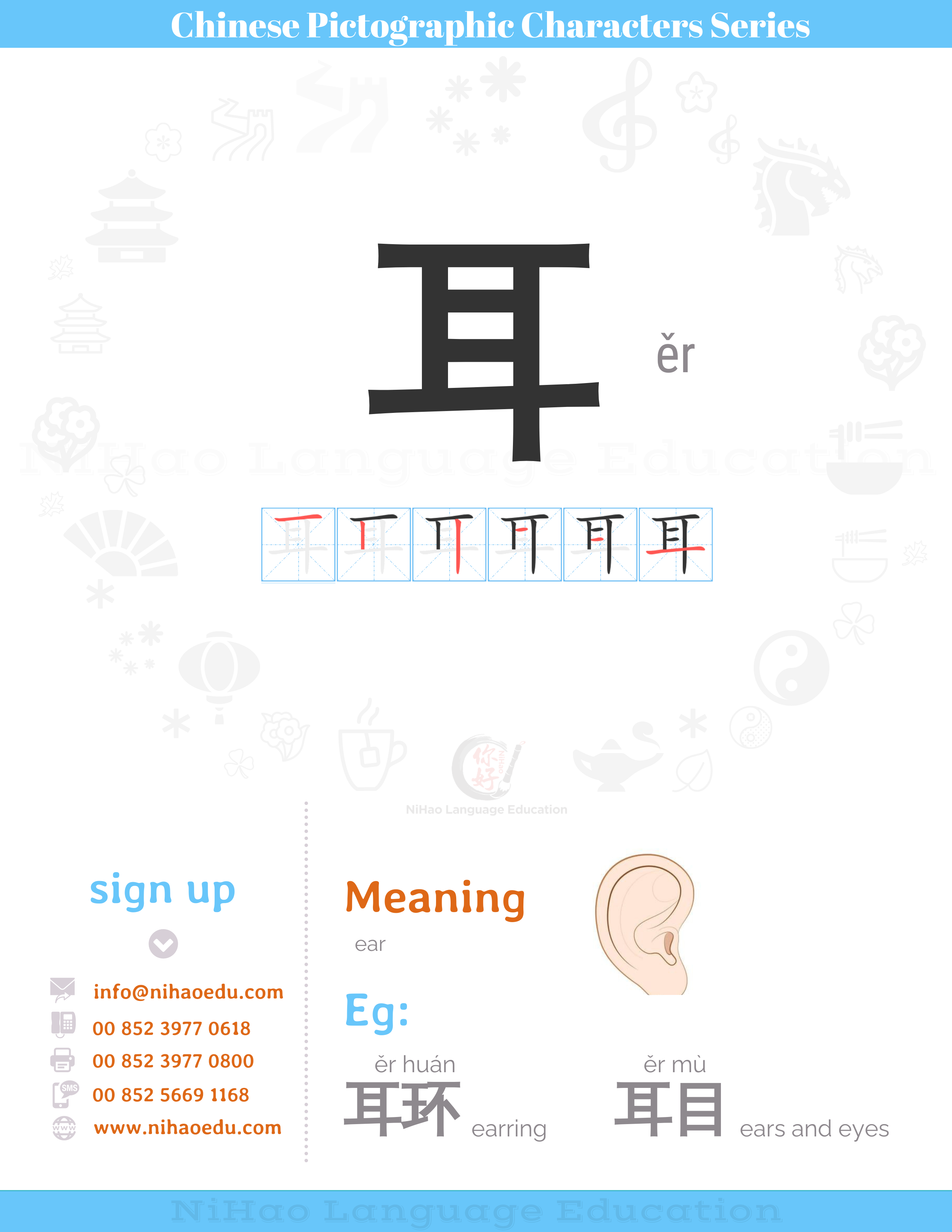Chinese Radicals Series耳ěr
- Posted by NIHAO
- Categories Chinese Radicals Series
- Date 2020-10-30
- Comments 0 comment
The word 耳 means ‘ear’ and the pictogram looks like the shape of an ear.
The word 耳 is often used in phrases relating to the ear, for example, 耳朵 (ěr duo, ’ear’), 耳光 (ěr guāng, ‘slap in the face’), 耳环 (ěr huán, ‘earring’) 耳语 (ěr yǔ, ‘whisper’). The phrase 耳目 (ěr mù) literally means ‘ears and eyes’. This phrase is generally used to refer to spies.
When it is used as a component in word formation, 耳 can appear in different positions. Words containing this component are generally related to the ear or to hearing, for example, 闻 (wén, ‘hear’), 聋 (lóng, ’deaf’), 聆听 (líng tīng, ’to listen respectfully’; the traditional character of 听 is 聼) and 聰 (cōng, ‘to hear well’).
There is a popular story about a thief who wanted to steal a bell from a rich man’s house. As it was too heavy to carry, the thief tried to break it into pieces using a hammer. But the noise and echo frightened him and he covered his ears. As the sound level seemed to be thus reduced, he decided to plug his ears with pieces of cloth and struck at the bell in earnest. The noise of the bell eventually raised the alarm and the thief was caught red-handed. This story, known as 掩耳盗铃 (yǎn ěr dào líng), bears some similarities to the story of the ostrich that is said to bury its head in the sand.
Idioms and phrases
耳背 ěr bèi
Hard of hearing
耳边风 ěr biān fēng
To turn a deaf ear to what someone says
耳聪目明 ěrcōng-mùmíng
Literally ‘the ears can hear well and the eyes can see clearly’, meaning to be able to understand a situation well
耳朵软 ěr duo ruǎn
Easily influenced by what someone says; without an opinion of one’s own
耳机 ěr jī
Earphone; earpiece
耳聋 ěr lóng
Deaf
耳目一新 ěr mù yì xīn
Refreshing
耳濡目染 ěr rú mù rǎn
To be influenced by what one sees and hears daily
耳闻目睹 ěrwén-mùdǔ
To hear or see something personally
你也许也喜欢

Chinese Radicals Series父fù

Chinese Radicals Series非fēi

